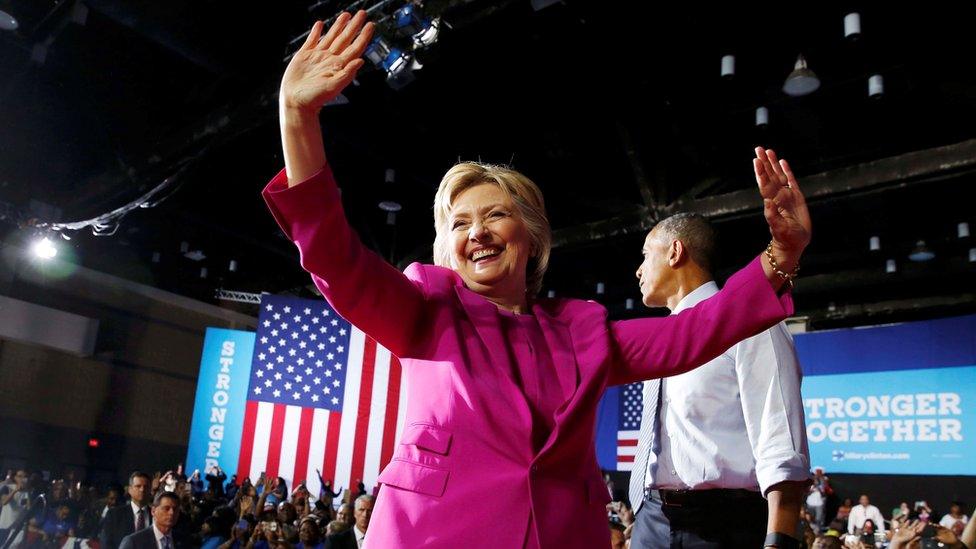Ivanka Trump used personal email for White House business
- Published
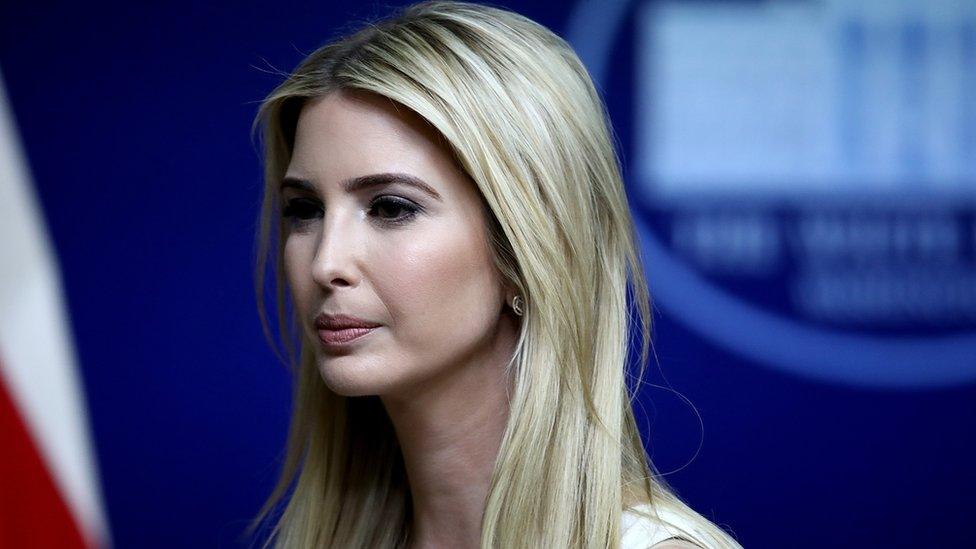
Ms Trump reportedly stopped using her personal email for official work after being told the rules
Ivanka Trump used a personal email account to send hundreds of messages discussing official White House business last year, officials confirm.
A review into her emails revealed she had used her private address to contact government officials.
Ms Trump sent the emails before she was briefed on the rules, her lawyer says.
In 2016, her father Donald Trump accused Hillary Clinton of putting the US "in danger" over her use of a private email while secretary of state.
On Monday, the Washington Post reported, external that while Ms Trump's emails contained mostly logistical and personal information, some may still have been in violation of federal records rules.
How serious is this?
A Trump administration official told CBS News that Ms Trump's emails did not contain classified information, and what had occurred was basically a lack of understanding of the rules.
Ms Trump stopped using her personal address for government correspondence after she was informed that she should not be doing so, the official said.
However, Austin Evers, from a group called American Oversight, which submitted the freedom of information request that led to the discovery of Ms Trump's use of personal email last year, said the "president's family is not above the law".
"There are serious questions that Congress should immediately investigate," Mr Evers said in a statement, external.
"Did Ivanka Trump turn over all of her emails for preservation as required by law? Was she sending classified information over a private system?" he added.
Peter Mirijanian, a spokesman for Ms Trump's counsel Abbe Lowell, said in a statement to US media: "Ms Trump sometimes used her private account, almost always for logistics and scheduling concerning her family."
He added that Ms Trump did not create a private server and never transmitted any classified information.
"The account was never transferred or housed at Trump Organization, no emails were ever deleted, and the emails have been retained in the official account in conformity with records preservation laws and rules."
What did Trump say about Clinton's emails?
During his presidential campaign in 2016, Donald Trump said that Mrs Clinton's use of a private server to send official emails while in her post as secretary of state in 2009 was a scandal "bigger than Watergate".
He repeatedly criticised her conduct, calling her actions "illegal" and a threat to the security of the US.
President Trump insists Ivanka's emails are 'not like Hillary's'
At the time of his campaign, Mr Trump frequently encouraged crowds at rallies to chant "lock her up" and threatened to imprison Mrs Clinton over the saga.
He also called on Russia to help locate some 30,000 emails that Mrs Clinton had not turned over to investigators after she, or her lawyers, determined it was unnecessary as they were personal messages.
What was the Clinton email saga all about?
Before becoming secretary of state, Mrs Clinton set up an email server at her home in Chappaqua, New York, that she used for all work and personal emails during her four years in office.
She did not use, or even activate, a state.gov email account, which would have been hosted on servers owned and managed by the US government.
She said it was for convenience.
An FBI investigation concluded that Mrs Clinton should not face charges, but said she and her aides had been "extremely careless" in their handling of classified information.
Are private emails illegal?
It is not illegal for White House officials to use personal email accounts for government business.
However, under the Presidential Records Act and Federal Records Act, government officials must forward any official correspondence to a work account within 20 days for preservation.
If this is not done reliably, the use of private accounts can put official records beyond the reach of journalists, lawmakers and others who seek publicly available information.
There are also rules against sharing classified or privileged information on personal email accounts.
- Published12 June 2018
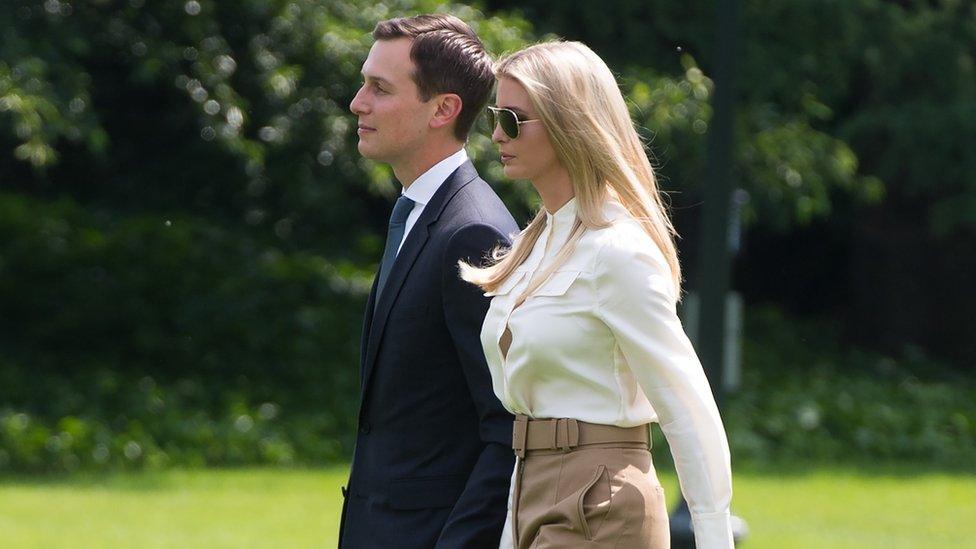
- Published12 June 2018
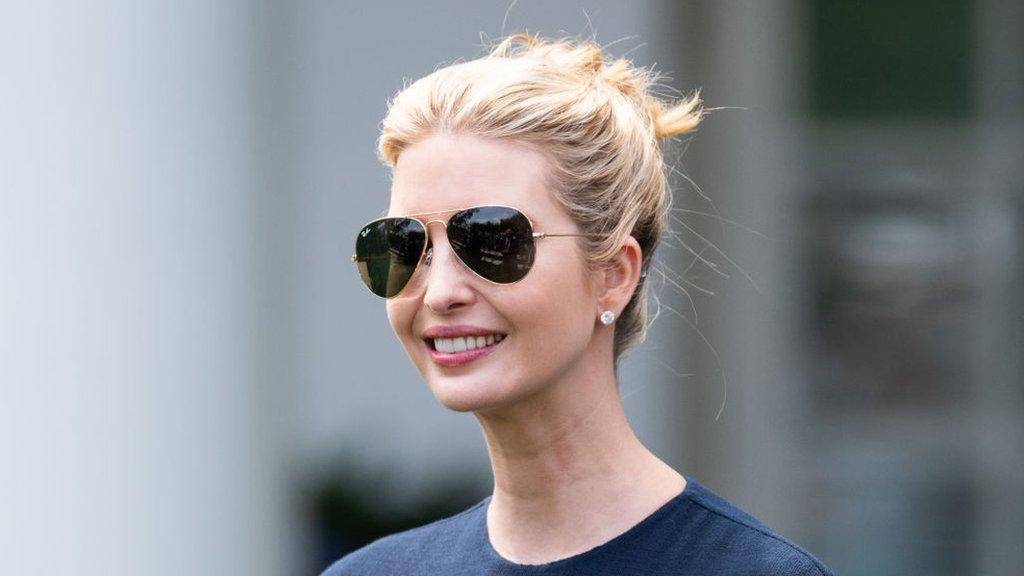
- Published23 May 2018
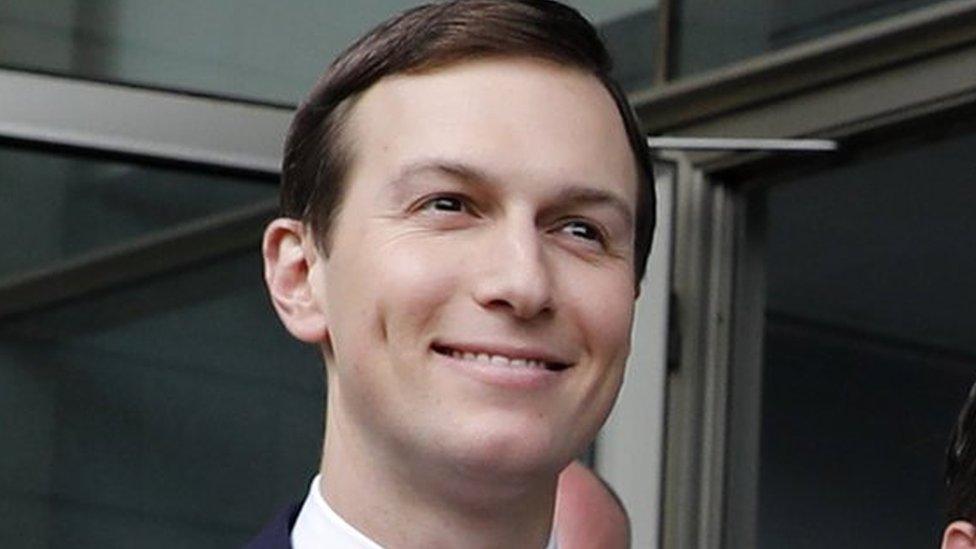
- Published24 July 2018
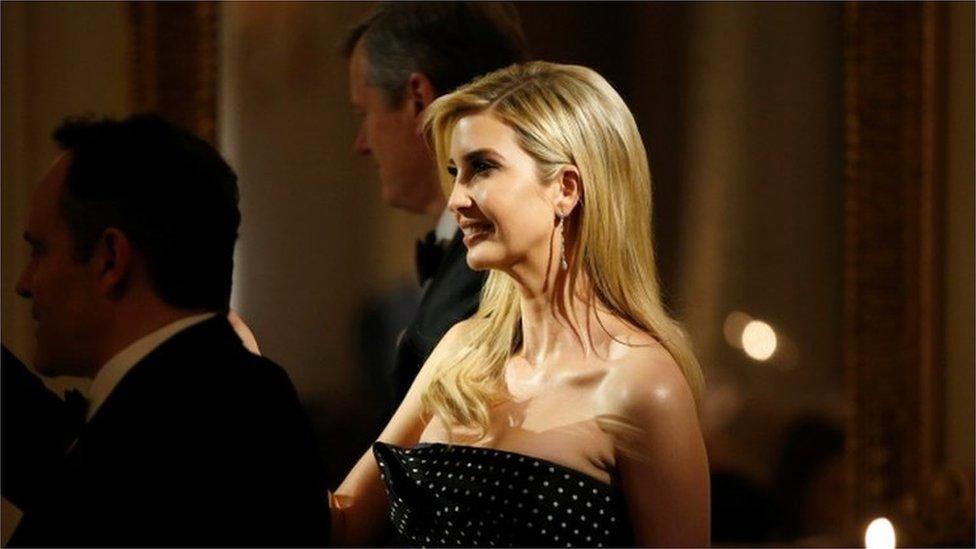
- Published6 November 2016
- Published6 July 2016
